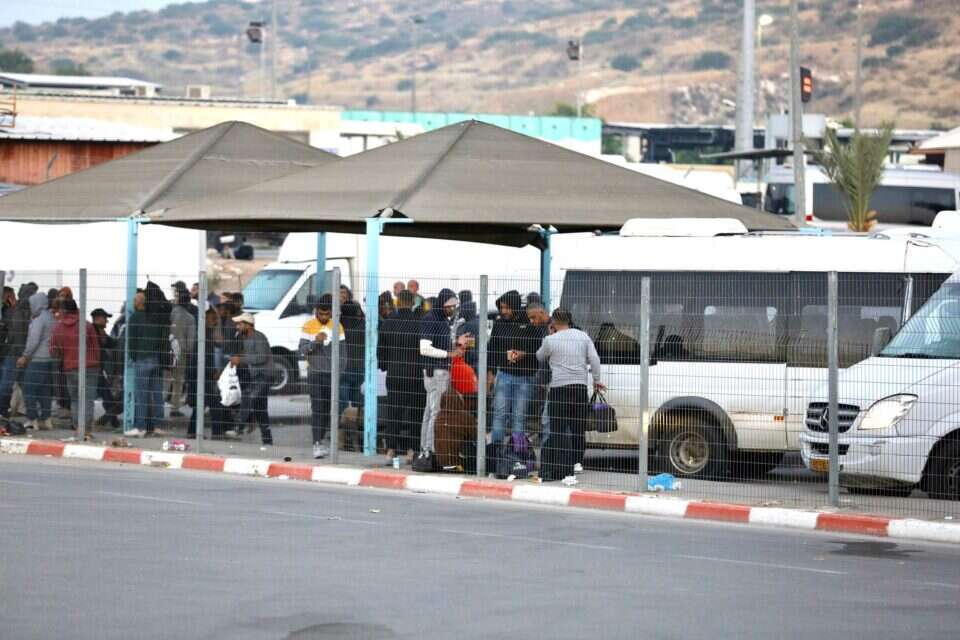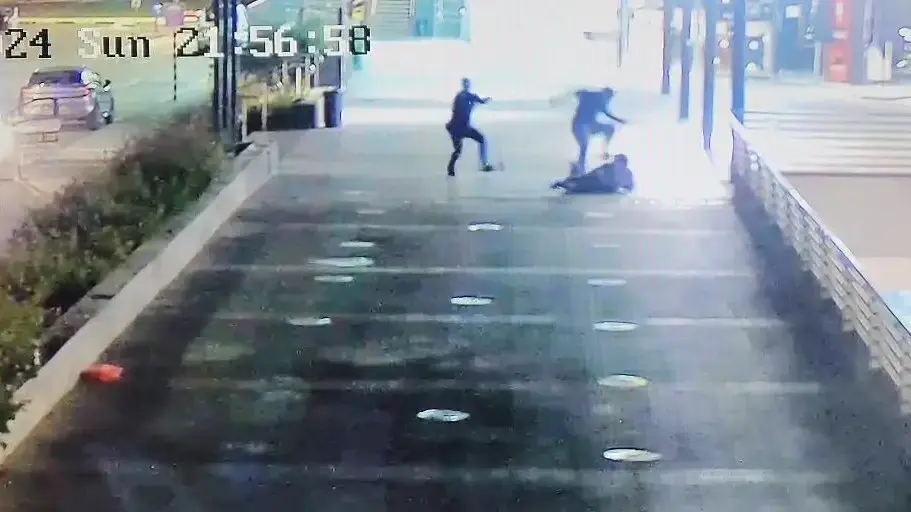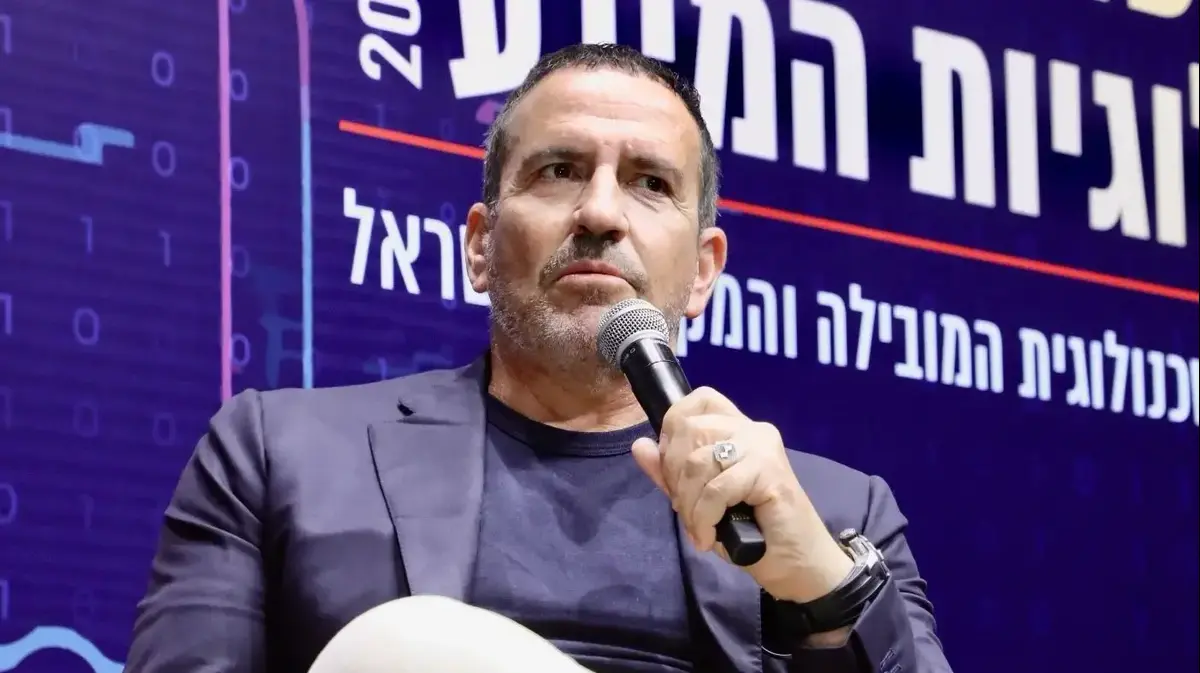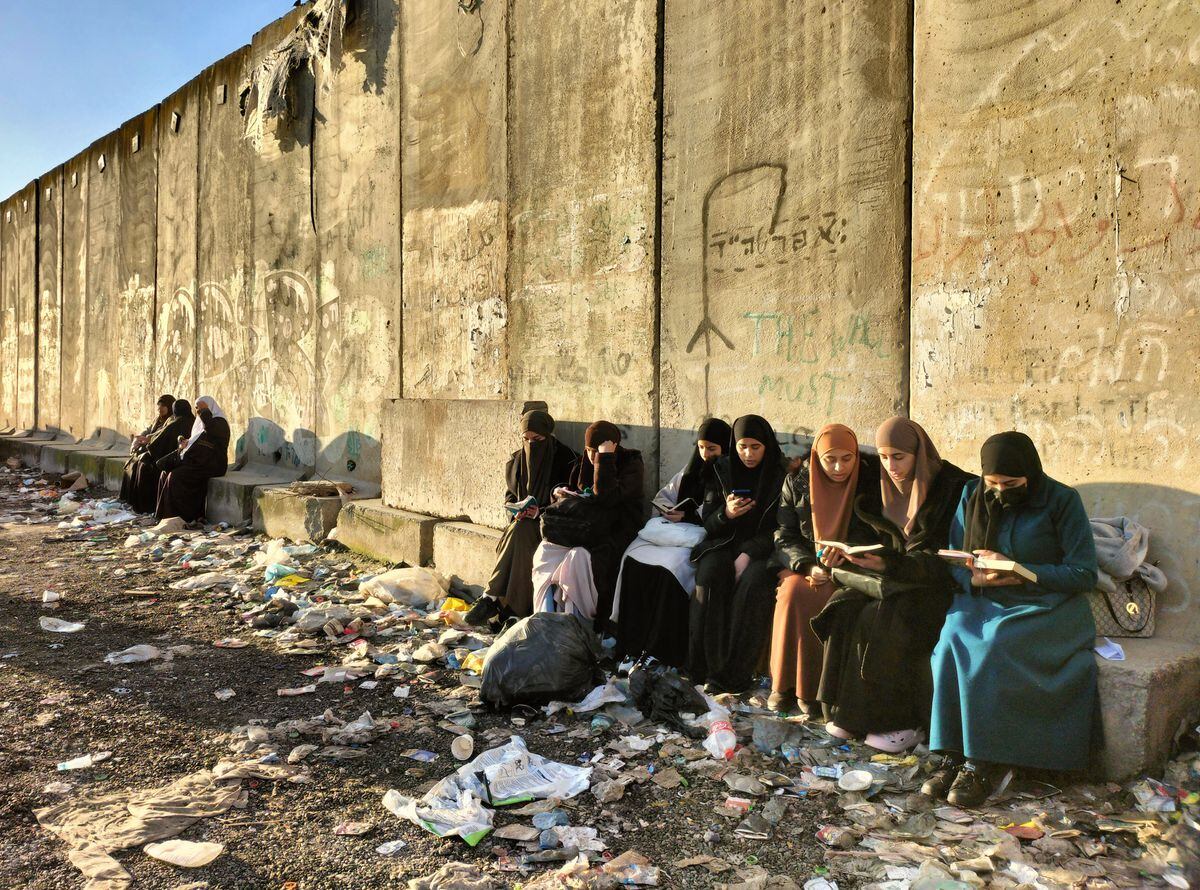About 200,000 Palestinians are currently earning an Israeli salary.
119,000 of them have permanent work permits within the Green Line, another 30,000 work in Israeli localities in Judea and Samaria, and according to estimates, until the current wave of terrorism, about 40,000 illegal immigrants worked in Israel every day, entering the Green Line unhindered The many loopholes in the fence.
In accordance with the current guidelines of the General Security Service, work permits in Israel are issued only to young Palestinians aged 22 and over, married, for whom there is no security or other indication.
According to current guidelines, a single Palestinian of any age cannot obtain a work permit in Israel.
Work permits in Israel are divided into sectors, and most permits are issued to the construction industry, but permits are also issued for work in agriculture, industry and services, hospitals and more.
The quota of approvals for each of the sectors is determined by a proposal of the decision-makers in the government.
The most sought-after sector is "industry and services", which is a very broad field, which includes work in bakeries, factories and more.
The defense establishment was very interested in increasing the quota in this area, which still employs quite a few Shevats without a permit, but according to security sources, the Ministry of Economy limits the number of permits, claiming that Israelis can also work in these professions. They are the Israelis who are willing to come to the bakery at 02:00 at night and bake pitas, and those who fill the lines are staying illegally.
It is no secret that the demand among Palestinians for work permits in Israel is very high, partly because a Palestinian working in Israel earns about NIS 6,000 a month, almost three times the salary he receives in the Palestinian Authority.
In order to obtain a permanent work permit in Israel, the Palestinian is required to find him an Israeli employer who will submit the appropriate forms for him, and will undertake to provide him with a fixed salary and social conditions.
The advantage for workers in this method is the fact that their social rights are guaranteed, but the problem is that employers have a great deal of power in choosing workers.
The existing system today opens the door to speculation that has developed in work permits, when "fictitious" employers, who succeed in obtaining work permits for Palestinians, incur a commission from employers or workers.
90 days, move
The problems do not end here.
According to security sources, as part of the system today, every Palestinian working in Israel with a permit has previously been a Shin Bet. During the defined period he does not find a job, he can get a permit to look for work again only after 90 days.
Construction workers in Israel (those photographed have nothing to do with what was said), Photo: Yehoshua Yosef
In practice, it is reasonable to assume that those who are unable to find an employer do not wait that long, but move to Israel illegally in order to find a source of livelihood as soon as possible.
Also, a worker who has found a suitable employer must wait for the bureaucratic procedures to be completed until official approval is obtained.
In view of all these problems, and out of a desire to reduce the phenomenon of the Shin Bet, the Government Operations Coordinator Unit in the Occupied Territories (IDF) has long believed that reform is needed in the world of employment of Palestinian workers in Israel.
These days, the Ministry of the Interior and the Shin Bet are working to examine the issue of work permits for Palestinians, and in addition to expanding the number of permits, the possibility of granting work permits to single but older Palestinians is being examined.
Wide deployment of forces
According to estimates by the defense establishment, before the current wave of terrorism and the Israeli attempt to close the seam as much as possible, about 40,000 Shavuot worked in Israel every day, infiltrating Israel almost unhindered through many breaches in the fence.
The truth is that even Palestinians with regulated work permits would sometimes prefer to move to Israel through loopholes, in part because the loopholes are closer to their homes.
In addition, many Palestinians with a legal work permit prefer to move to Israel through loopholes rather than official crossings due to the overcrowding and congestion at official crossings, and given the need to stand for long minutes in queues that do not have adequate drinking water or toilet infrastructure.
The terrorists penetrated through the separation fence,
Although Israel is trying to find a way to improve the conditions in the crossings and expand them, in the near future the IDF will inform the Palestinian workers that an undocumented worker passes through the crossings several times in a period of about six months - can no longer hold the work permit .
One way or another, in view of the fact that through the loopholes in which ISIS passers-by pass through Israel, terrorists have also succeeded in infiltrating, Israel has recently decided to combat the phenomenon of ISAs.
At present, the IDF has an unprecedented number of 26 battalions in Judea and Samaria, many of which carry out ongoing security activities in the seam area in order to prevent the Shin Bet from entering Israel.
As a result of the effort, Israel has managed to reduce the phenomenon by about 90%, and it is estimated that only a few hundred Shabbos are entering Israel these days. The warriors and their readiness for war.
The defense establishment is interested in finding a systemic and long-term solution to the phenomenon, but emphasizes that in addition to building the seam space and closing the loopholes, the activities of the police and the judicial system are also required.
Security officials have a full stomach for the police, who on days like the amendment did not place enough emphasis on capturing praise, and also on the judiciary, which according to the guidelines is satisfied with a warning only for every praise the first two times it is apprehended, and only stops it for the third time.
Until these issues are resolved, say the defense establishment, and until there is no root canal treatment even for those who employ, drive and mourn the praise - no real solution can be found to the disturbing phenomenon.
Were we wrong?
Fixed!
If you found an error in the article, we'll be happy for you to share it with us















